Table of Content
ToggleIntroduction
Brazil, a land of enchantment and breathtaking natural beauty, is also home to some of the most captivating and exhilarating parades and festivals in the world. The country’s passion for celebration is evident in its rich and diverse Carnival traditions, each offering a unique and unforgettable experience. In this blog post, we will delve into the various Carnival parades and festivals across Brazil, comparing their characteristics, history, dates, and traditions. We will also explore what sets them apart, what makes them outstanding, and how you can participate in these unforgettable events.
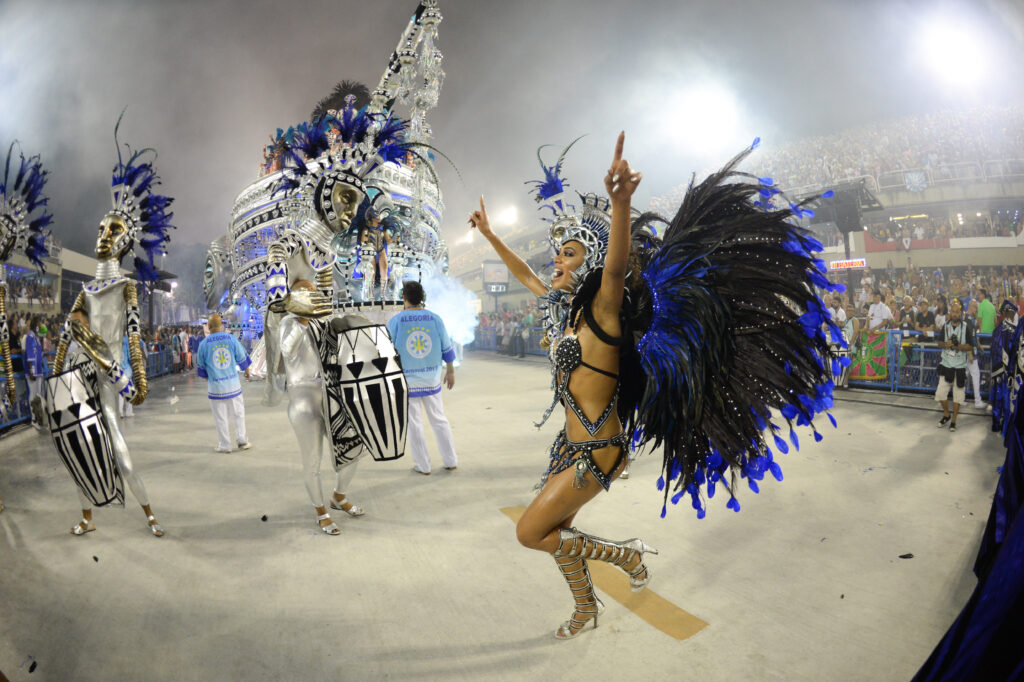
Rio de Janeiro Carnival
Arguably the most famous and iconic of all Brazilian festivals, the Rio Carnival is renowned for its incredible samba performances, intricate costumes, and vibrant street parties known as “blocos.” The Rio Carnival dates back to the 18th century, but it was not until the 20th century that samba schools began to emerge, transforming the festival into the spectacle we know today. The Rio Carnival usually takes place in February or March, depending on the date of Easter.
The main highlight of the Rio Carnival is the Samba Parade, where various samba schools compete for the prestigious title of the best samba performance. Each school presents a unique theme with elaborately designed floats and costumes, showcasing the best of Brazilian culture and creativity. Additionally, the “blocos” are another essential aspect of the Rio Carnival, where people take to the streets to dance and celebrate in a more informal and spontaneous atmosphere.
To participate in the Rio Carnival, you can either join a samba school or attend one of the many street parties. Tickets to the Samba Parade can be purchased online, while the street parties are generally free and open to all.
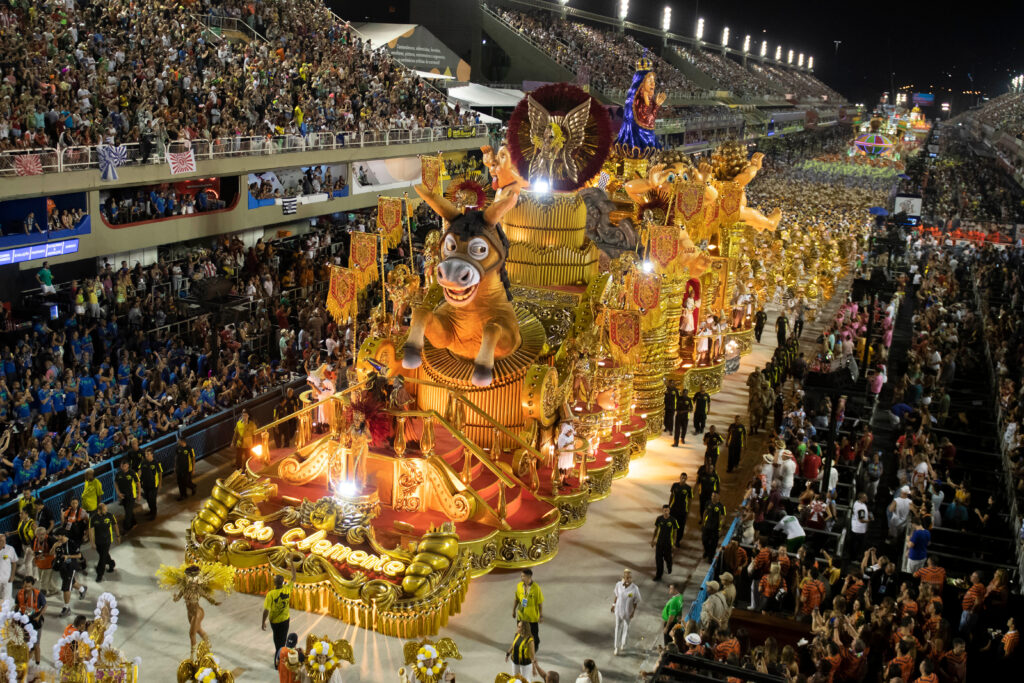
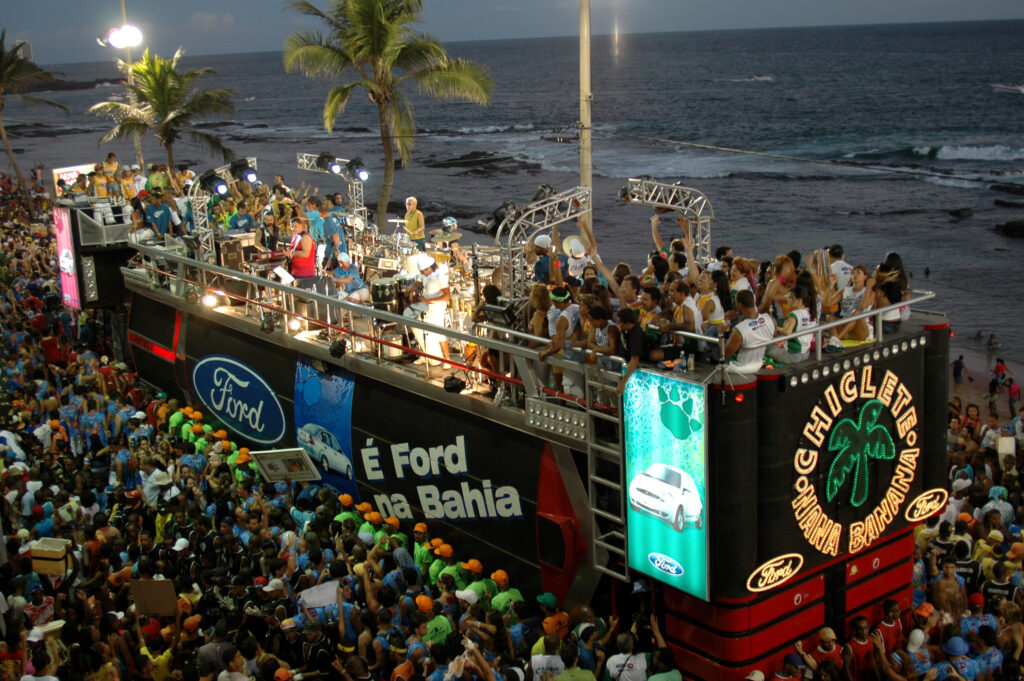
Salvador Carnival
Salvador, the capital of Bahia state, hosts a Carnival that rivals Rio’s in terms of size and energy. The Salvador Carnival is deeply rooted in Afro-Brazilian culture, with a focus on the lively musical genre known as “axé.” This Carnival typically takes place around the same time as the Rio Carnival, with dates varying according to Easter.
The Salvador Carnival is renowned for its “trios elétricos,” large trucks equipped with powerful sound systems that carry bands and artists as they perform throughout the city. The energetic and infectious rhythms of axé music create an electrifying atmosphere, as people dance and sing along to the music. The Salvador Carnival also features traditional Afro-Brazilian performances, such as the “blocos afro” and “afoxés,” which pay homage to the region’s rich cultural heritage.
To participate in the Salvador Carnival, you can either join a “bloco” or simply follow the “trios elétricos” as they make their way through the city. Many blocos require a small fee to join, while others are free and open to all.
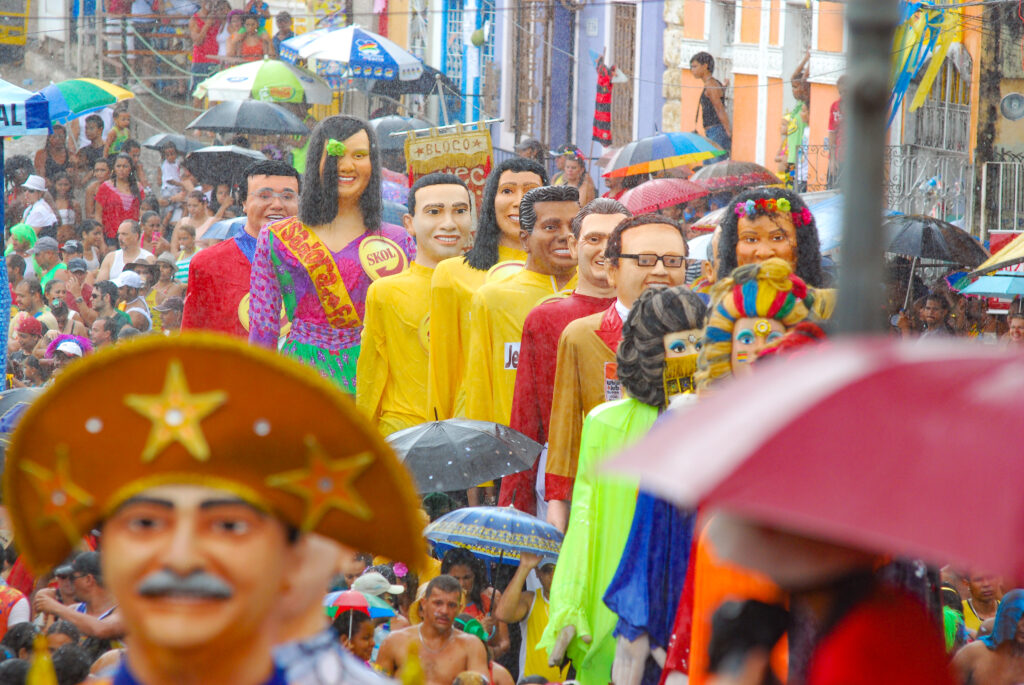
Olinda and Recife Carnival
In the neighboring cities of Olinda and Recife, located in the state of Pernambuco, you’ll find a Carnival that is a unique blend of tradition and innovation. The Olinda and Recife Carnival dates back to the 17th century and is known for its diverse array of musical genres, including frevo, maracatu, and caboclinhos. The Carnival typically takes place around the same time as the other Brazilian Carnivals.
One of the most iconic elements of the Olinda and Recife Carnival is the presence of giant puppets, known as “bonecos gigantes.” These towering, colorful figures are paraded through the streets, adding a whimsical touch to the festivities. The Galo da Madrugada, a giant rooster puppet, is one
of the most famous bonecos gigantes, attracting thousands of revelers to the streets of Recife.
In Olinda, the historic streets and colorful colonial architecture provide a stunning backdrop for the city’s Carnival celebrations. The “Encontro dos Maracatus” is a standout event, where various maracatu groups come together to perform their traditional rhythms and dances in a mesmerizing display of Pernambuco’s cultural heritage.
To participate in the Olinda and Recife Carnival, you can either join a “bloco” or simply enjoy the various street performances and events. Many of the blocos are free and open to all, but some may require a small fee to join.
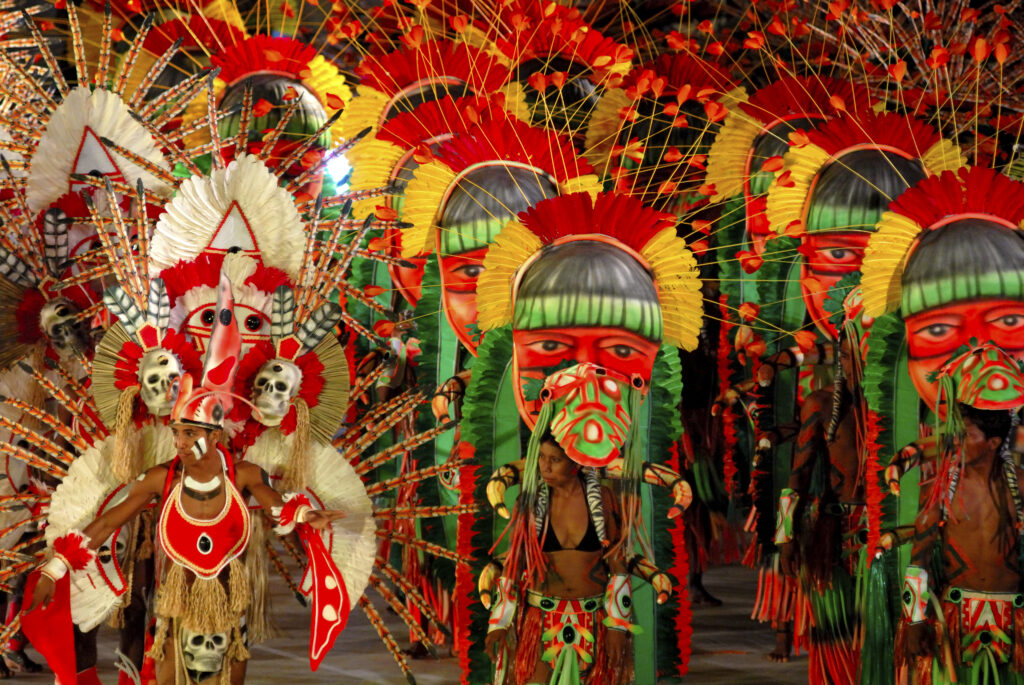
Parintins Folklore Festival
While not a traditional Carnival, the Parintins Folklore Festival is a unique and exciting event that takes place in the Amazonas state of Brazil. Held annually in June, this festival showcases the rich cultural traditions of the Amazon region through a spectacular theatrical performance called the “Boi Bumbá.”
The Boi Bumbá is a retelling of a local Amazonian legend, involving two competing teams – Garantido (Red) and Caprichoso (Blue) – that represent opposing sides of the story. Each team presents an elaborate performance, complete with intricate costumes, music, and dance, in an attempt to win over the audience and judges.
To attend the Parintins Folklore Festival, you will need to purchase tickets in advance, as this event is extremely popular and often sells out. There are several ticket packages available, ranging from single-day passes to multi-day options, which include accommodation and transportation.
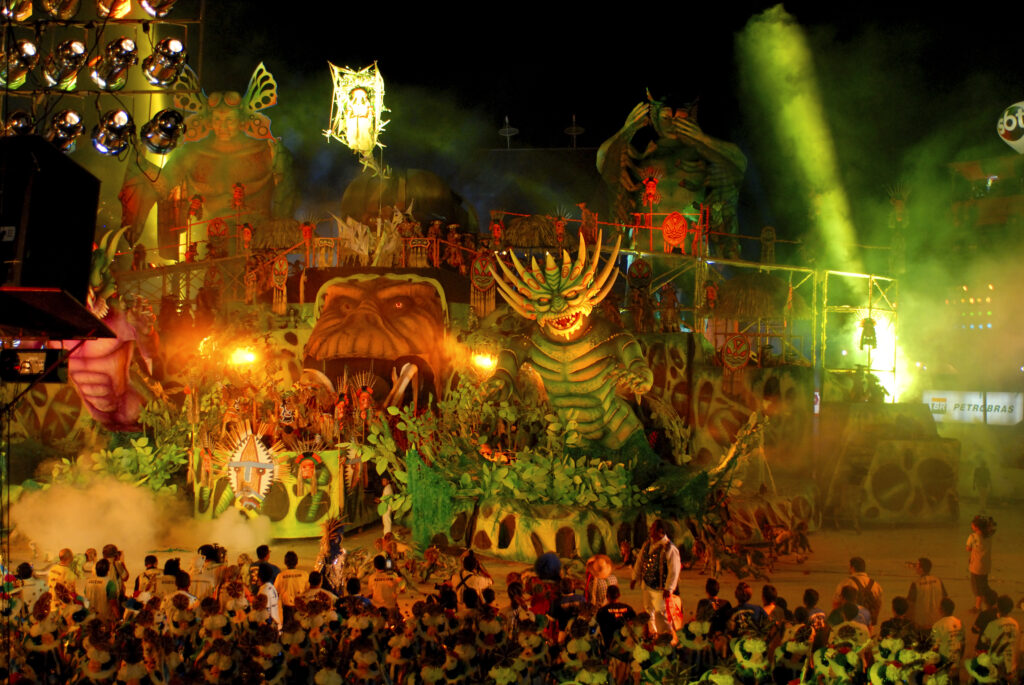
What about other Carnaval’s in Brazil
Indeed, Brazil’s vast and diverse landscape is home to many other captivating carnivals and festivals that showcase the country’s rich cultural tapestry. Let’s explore a few more of these unique celebrations:
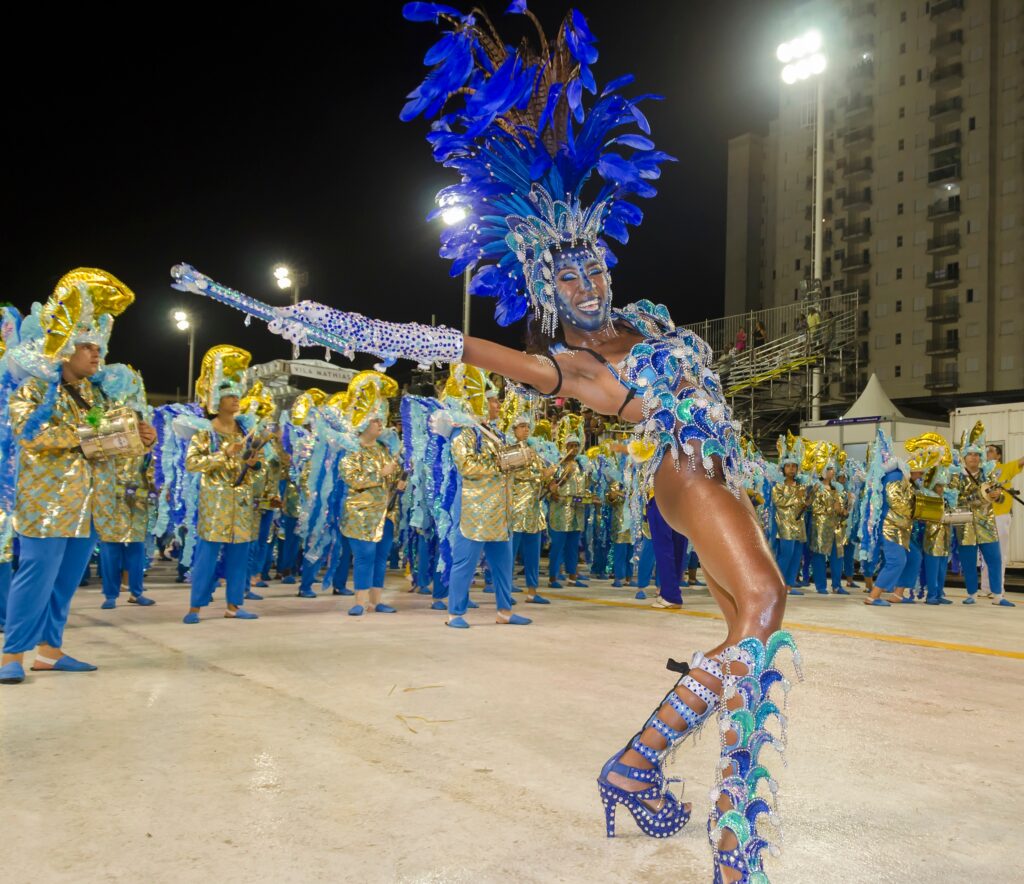
São Paulo Carnival
As Brazil’s largest city, São Paulo hosts its own spectacular Carnival celebration. The São Paulo Carnival is similar to the Rio Carnival, featuring a dazzling Samba Parade with competing samba schools, as well as vibrant street parties known as “blocos.” The city’s cosmopolitan atmosphere adds a unique flavor to the festivities, making it an exciting destination for Carnival enthusiasts.
Fortaleza Carnival
Fortaleza, located in the northeastern state of Ceará, offers a Carnival experience that blends traditional Brazilian rhythms with regional music styles, such as forró and baião. The Fortaleza Carnival is known for its lively “mela-mela” tradition, where participants playfully cover each other in colored powder, corn starch, or even chocolate. This creates a fun and festive atmosphere that makes the Fortaleza Carnival an unforgettable experience.
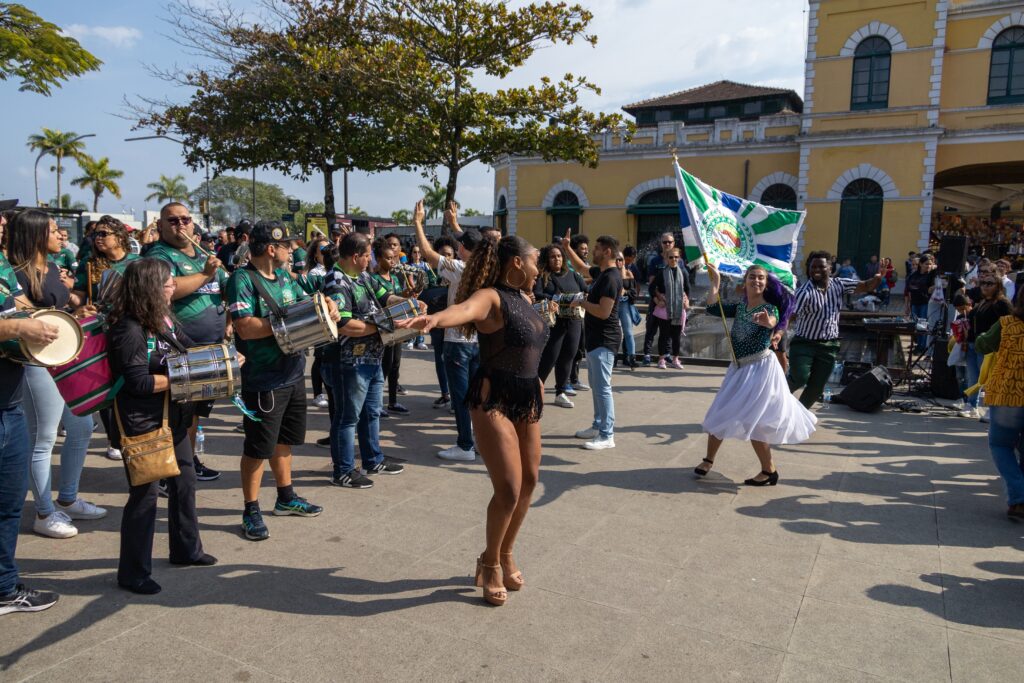
Florianópolis Carnival
Florianópolis, situated on the picturesque island of Santa Catarina, hosts a Carnival celebration that combines the charm of a beachside location with a vibrant party atmosphere. The Florianópolis Carnival features a variety of events, including samba parades, street parties, and even a unique LGBTQ+ parade called “Pop Gay.” With its beautiful beaches and energetic festivities, the Florianópolis Carnival is a popular choice for those seeking a more laid-back Carnival experience.
Ouro Preto Carnival
The historic city of Ouro Preto, a UNESCO World Heritage site, is known for its well-preserved colonial architecture and baroque churches. The Ouro Preto Carnival is a more intimate and traditional affair, with a focus on the city’s rich cultural heritage. The “blocos” in Ouro Preto are mostly organized by university students, giving the festivities a youthful and energetic vibe. In addition to the street parties, the Ouro Preto Carnival also features cultural events, such as exhibitions, workshops, and theater performances.
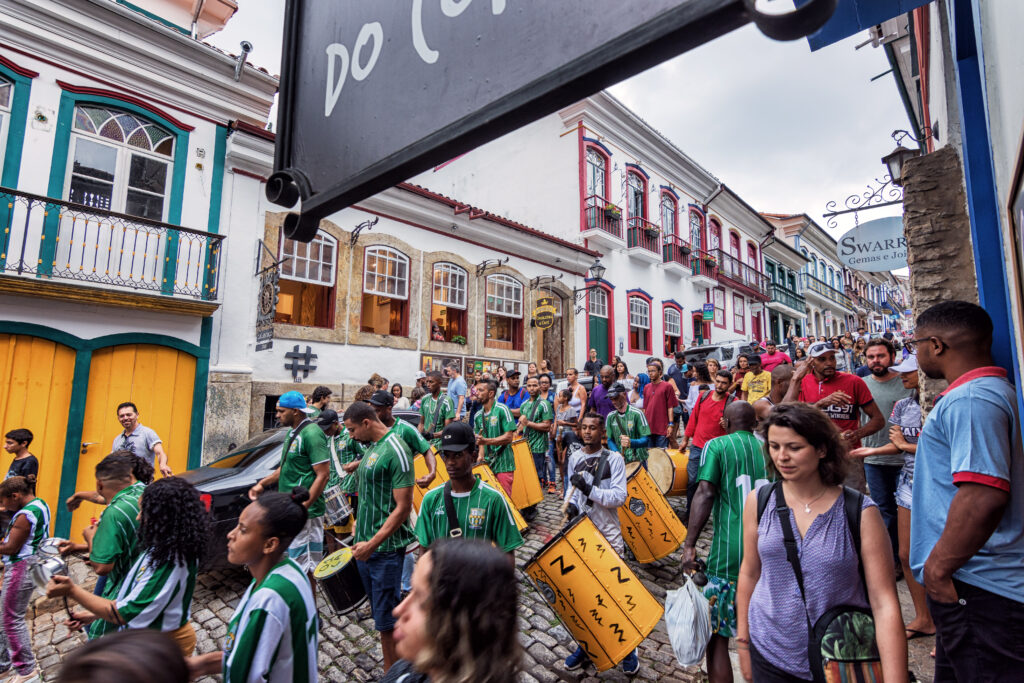
Porto Alegre Carnival
The Porto Alegre Carnival, held in the southern state of Rio Grande do Sul, is a unique blend of Brazilian and Gaucho traditions. While samba parades and street parties are still a significant part of the festivities, the Porto Alegre Carnival also showcases the region’s distinct Gaucho culture through traditional dances, music, and cuisine. The event is a fascinating combination of Brazilian Carnival spirit and local customs, making it a one-of-a-kind celebration.
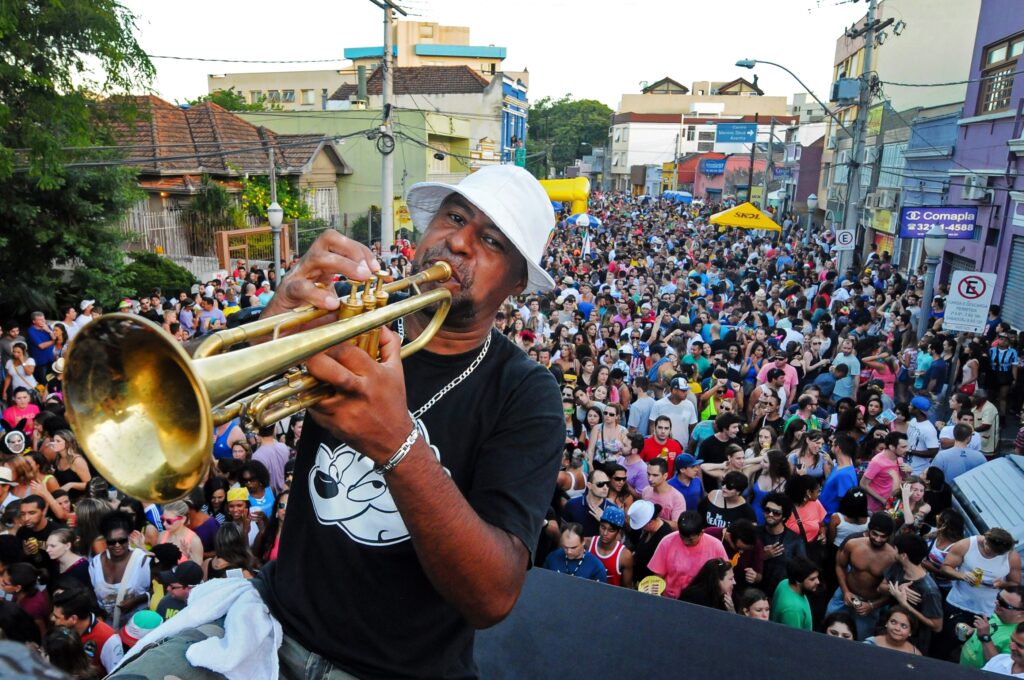
Conclusion
These are just a few examples of the many incredible carnivals and festivals that can be found throughout Brazil. Each event offers a unique and exciting glimpse into the country’s diverse and vibrant culture, ensuring that no matter where you choose to celebrate, you’re in for an unforgettable experience.
Brazil’s Carnivals are truly a feast for the senses, offering an array of unique experiences that celebrate the country’s rich cultural heritage. From the world-famous Rio Carnival to the vibrant Salvador Carnival, and from the traditional Olinda and Recife Carnival to the mesmerizing Parintins Folklore Festival, each event offers a different perspective on Brazil’s diverse and captivating culture.
If you’re planning to participate in any of these fantastic celebrations, it’s essential to plan well in advance, as tickets and accommodations can sell out quickly. Be prepared to immerse yourself in the music, dance, and traditions of Brazil’s Carnivals, and be prepared for an experience that you will never forget.

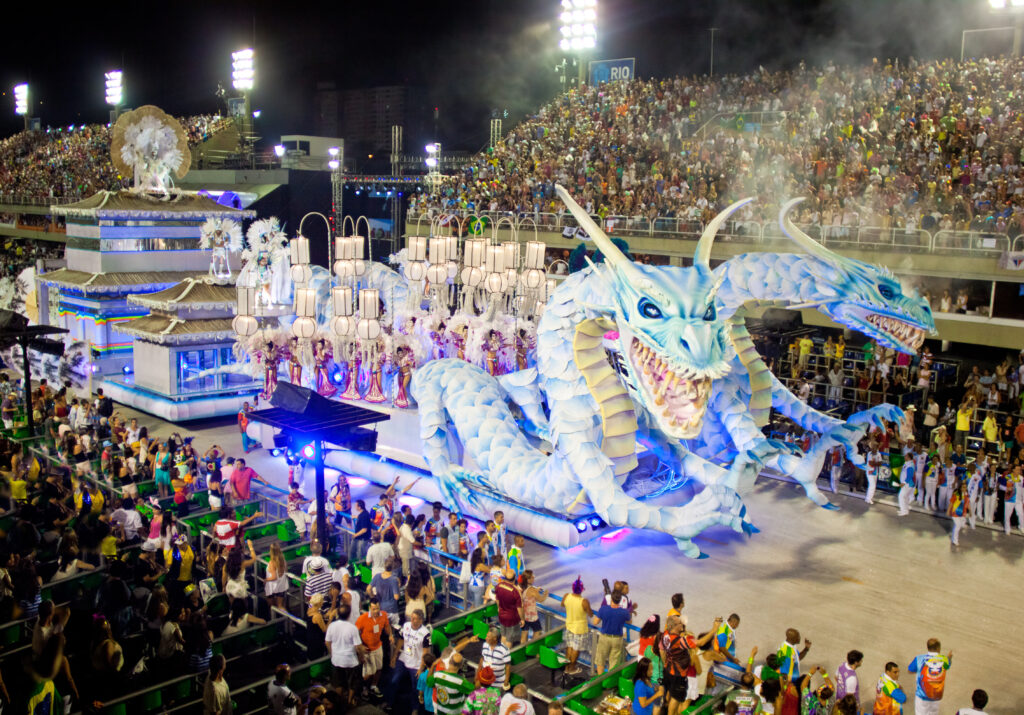

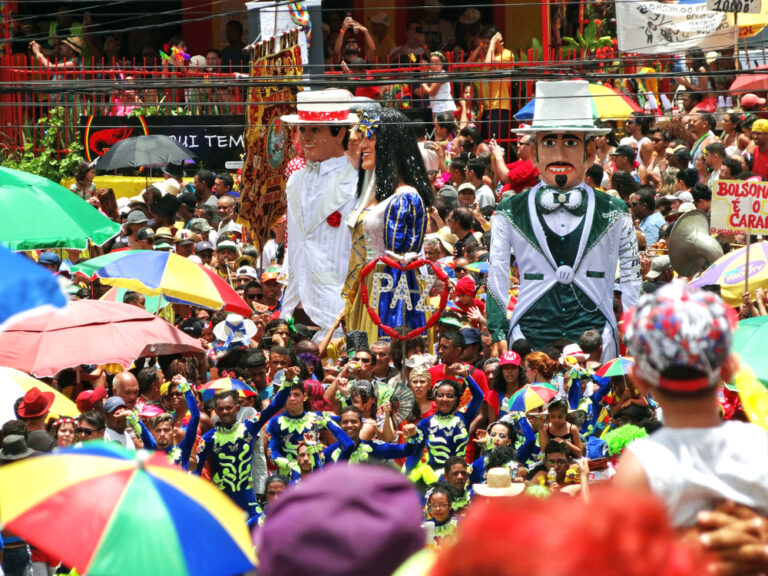

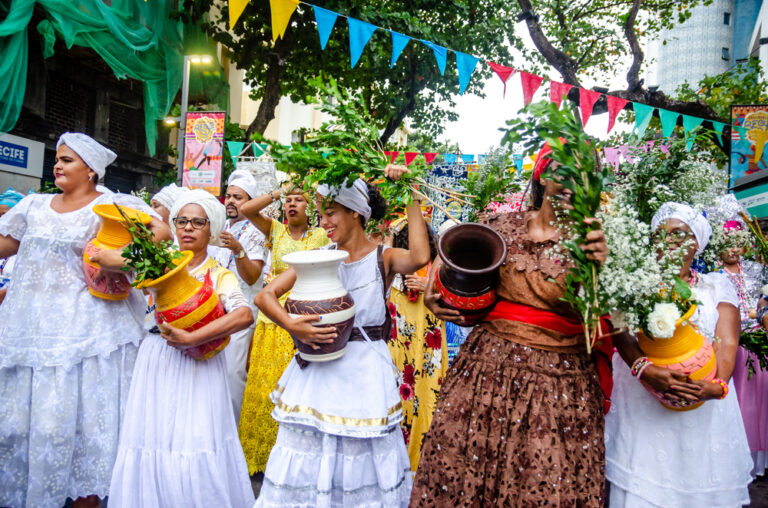
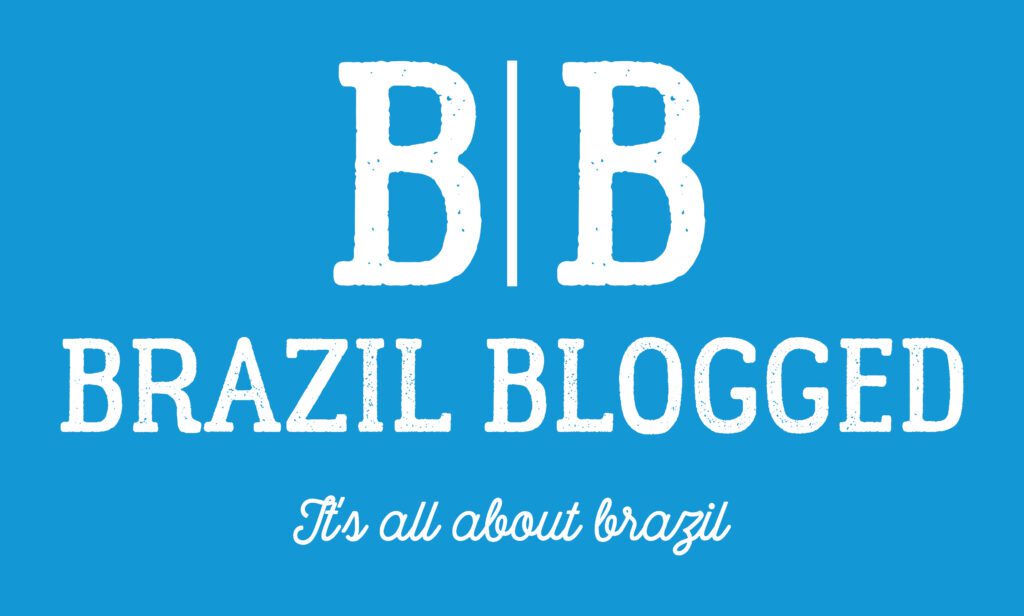


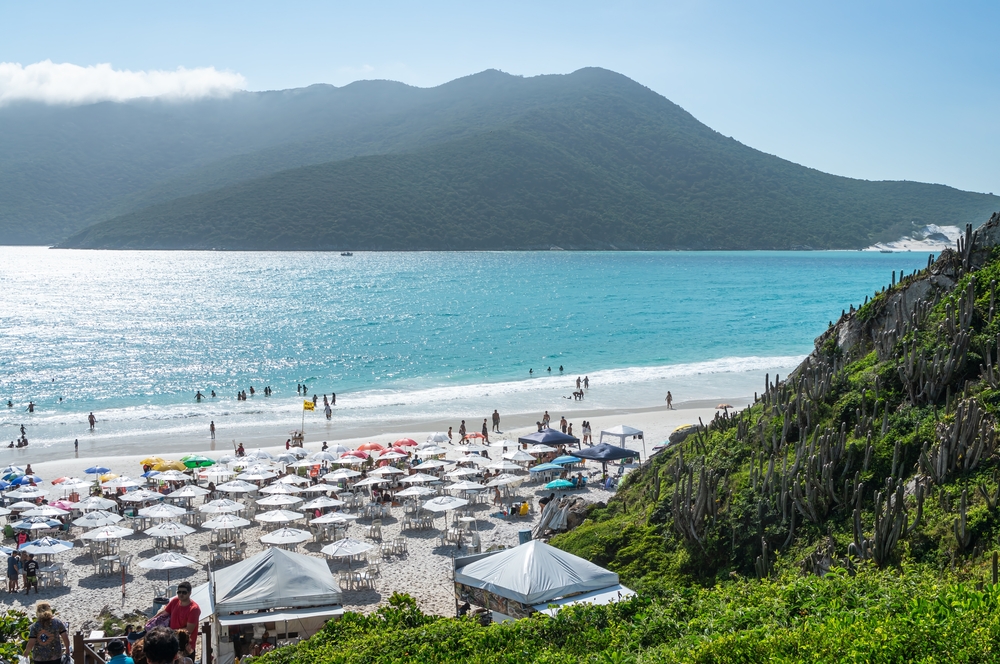

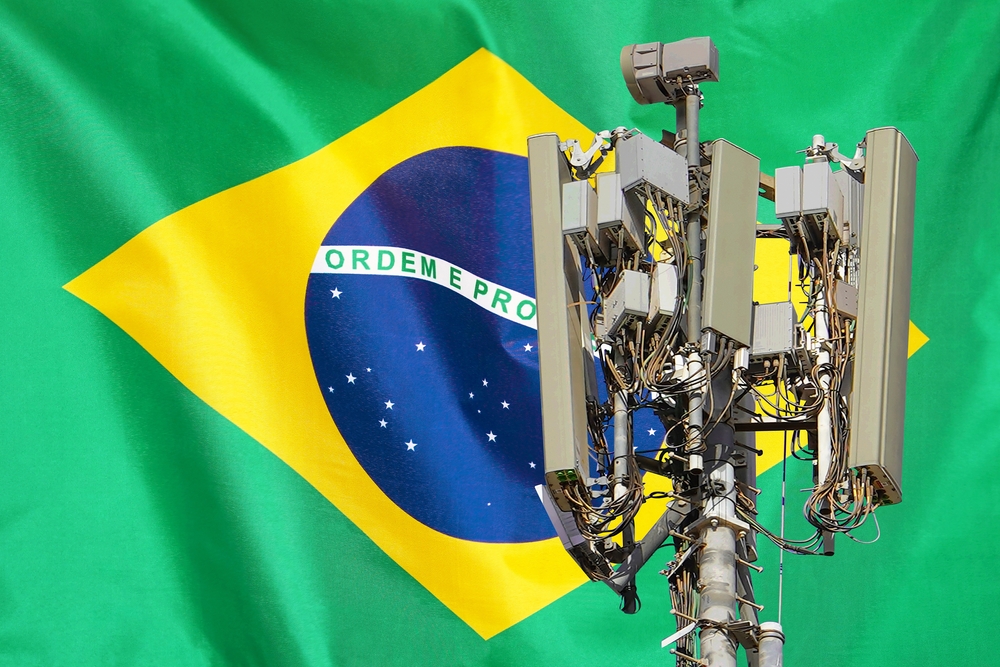
One Response